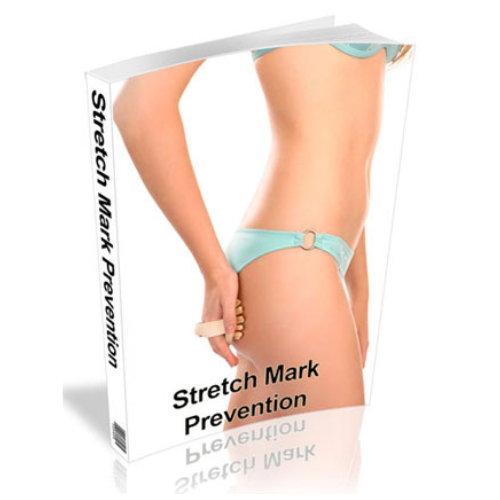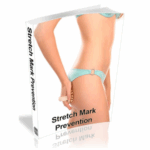What Can I Take to Prevent Stretch Marks? A Complete Guide
What can I take to prevent stretch marks? Stretch marks are a common skin concern affecting millions worldwide, especially during periods of rapid body change such as pregnancy, puberty, or weight gain. If you’ve been wondering, “What can I take to prevent stretch marks?”, this comprehensive guide will answer all your questions with practical advice, effective treatments, and scientific insights.
Understanding Stretch Marks
Stretch marks, or striae, are long, narrow streaks or lines that develop on the skin when it stretches quickly. They often appear red, purple, or pink initially, fading to silvery-white over time. Stretch marks commonly occur on the abdomen, thighs, hips, breasts, and arms.
Why Do Stretch Marks Occur?
Stretch marks happen when the middle layer of skin, called the dermis, tears due to rapid stretching. This damage causes collagen and elastin fibers, which maintain skin elasticity, to break down. Genetics, hormonal changes, and skin type also play a role.
What Can I Take to Prevent Stretch Marks?
While no treatment guarantees 100% prevention, certain supplements, creams, oils, and lifestyle changes can help minimize the risk and severity of stretch marks. Let’s explore what you can take and do to protect your skin.
1. Vitamins and Supplements
Certain vitamins are essential for skin health and elasticity. Taking these may support your skin’s ability to stretch without tearing.
Vitamin E
- Role: Powerful antioxidant that protects skin cells from damage and promotes healing.
- How to take: Vitamin E can be applied topically as an oil or taken as an oral supplement.
- Evidence: Studies show mixed results, but Vitamin E is widely used for skin repair.
Vitamin C
- Role: Crucial for collagen synthesis, which helps maintain skin strength.
- How to take: Available as supplements or found in fruits like oranges, strawberries, and kiwi.
- Evidence: Higher vitamin C intake supports collagen production, which may reduce stretch marks.
Zinc
- Role: A mineral important for tissue repair and collagen production.
- How to take: Oral zinc supplements or foods like nuts, seeds, and whole grains.
- Evidence: Zinc deficiency can impair skin healing; supplementation might reduce stretch mark risk.
Hyaluronic Acid
- Role: Hydrates skin and promotes tissue regeneration.
- How to take: Oral supplements or topical creams.
- Evidence: Some studies suggest hyaluronic acid can improve skin elasticity and reduce stretch marks.
Collagen Peptides
- Role: Collagen supplements may boost skin’s collagen levels.
- How to take: Powdered collagen peptides mixed with water or in capsules.
- Evidence: Early research indicates oral collagen may improve skin elasticity and hydration, potentially preventing stretch marks.
2. Topical Treatments to Take or Apply
Applying topical products can provide hydration and support skin elasticity, reducing stretch mark formation.
Retinoid Creams (Vitamin A derivatives)
- Examples: Tretinoin cream.
- How it works: Boosts collagen production and skin renewal.
- Caution: Not recommended during pregnancy or breastfeeding.
- Evidence: Shown to improve early stretch marks but less effective as prevention.
Cocoa Butter and Shea Butter
- Role: Moisturizes and nourishes skin.
- How to use: Apply daily to prone areas.
- Evidence: Limited scientific backing, but popular for maintaining skin hydration.
Centella Asiatica Extract
- Role: Herb that promotes collagen synthesis and skin healing.
- How to use: Found in creams and oils.
- Evidence: Clinical trials show potential to prevent stretch marks by improving skin elasticity.
Oils Rich in Fatty Acids
- Examples: Almond oil, jojoba oil, rosehip oil.
- How to use: Massage into skin regularly.
- Evidence: May improve skin moisture and elasticity, but scientific evidence for stretch mark prevention is limited.
3. Lifestyle Changes and Habits
Prevention is often about maintaining healthy skin through balanced nutrition and hydration.
- Stay Hydrated: Drink plenty of water daily to keep skin plump and elastic.
- Balanced Diet: Eat foods rich in vitamins A, C, E, zinc, and protein.
- Avoid Rapid Weight Changes: Gradual weight gain/loss gives skin time to adjust.
- Regular Exercise: Improves circulation and skin health.
- Gentle Skin Care: Avoid harsh soaps or hot showers that dry out skin.
4. Medical and Cosmetic Procedures (What to Consider)
While mostly used to treat existing stretch marks, some procedures may also help in prevention by improving skin elasticity.
- Laser Therapy: Stimulates collagen and elastin.
- Microneedling: Promotes skin regeneration.
- Radiofrequency Treatments: Tighten skin and promote collagen.
- Platelet-Rich Plasma (PRP): Uses growth factors to enhance healing.
Note: These are typically more expensive and performed by dermatologists.
How to Choose the Right Prevention Method?
- Pregnancy: Focus on safe topical products like cocoa butter and oils, plus prenatal vitamins.
- Teens and Adults: Consider collagen supplements and a balanced diet.
- If You Have Sensitive Skin: Patch test oils or creams before applying.
- Consult Your Doctor: Before starting supplements or retinoids, especially if pregnant or nursing.
Frequently Asked Questions (FAQs)
What vitamins prevent stretch marks?
Vitamins E, C, and zinc are known to support skin health and collagen production, which can help prevent stretch marks. Collagen peptides and hyaluronic acid supplements may also improve skin elasticity.
Can I take collagen to prevent stretch marks?
Yes, collagen supplements may enhance skin’s collagen levels and elasticity, potentially reducing the chance of stretch marks.
Are there pills to prevent stretch marks?
There are no FDA-approved pills specifically for stretch mark prevention, but supplements like vitamins E, C, zinc, hyaluronic acid, and collagen peptides can support skin health.
What is the best topical treatment to prevent stretch marks?
Moisturizing creams with cocoa butter, shea butter, or oils rich in fatty acids can help maintain skin hydration. Retinoid creams can improve collagen but should be avoided during pregnancy.
Can I prevent stretch marks during pregnancy?
Yes. Stay hydrated, eat a nutritious diet, use safe moisturizers regularly, and consult your doctor about prenatal vitamins.
How soon should I start treatment to prevent stretch marks?
Prevention is most effective when started before rapid skin stretching occurs, such as early pregnancy or before anticipated weight gain.
Related Articles You Might Like
- Top 10 Natural Remedies for Stretch Marks That Actually Work
- The Best Vitamins and Supplements for Healthy Skin
- How to Hydrate Your Skin Properly: Tips for Glowing Skin
- Retinoids and Stretch Marks: What You Need to Know
- Stretch Marks After Weight Loss: Prevention and Treatment
Conclusion
If you’re asking, “What can I take to prevent stretch marks?”, the best approach combines proper nutrition, hydration, topical care, and sometimes supplements like collagen and vitamins. Although no method guarantees complete prevention, following these tips can significantly reduce your risk and improve skin resilience.
Remember, stretch marks are natural and common, and your skin can heal and improve over time with the right care.




